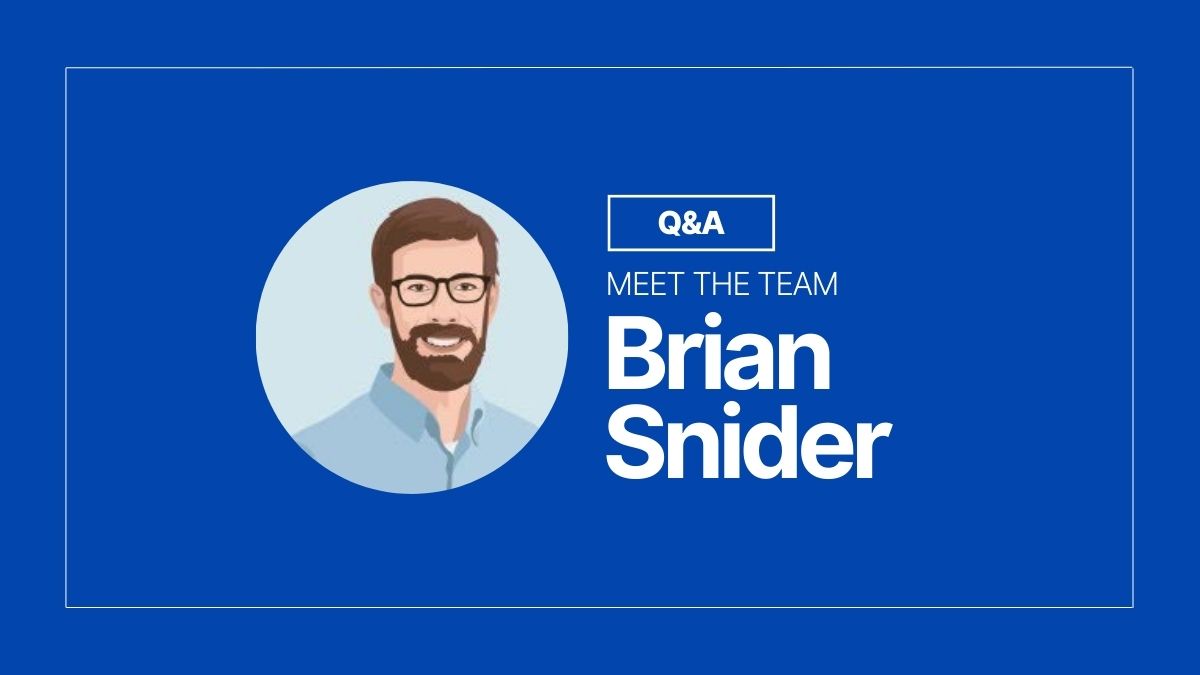“It’s always feasible”: A Q&A with Brian Snider
Lit Communities founder joins the Connect Humanity team

We’re excited to welcome founder and former CEO of Lit Communities Brian Snider to the team as Managing Director of Broadband Implementation.
With years of experience in the nuts and bolts of broadband, Brian brings a new level of technical expertise to Connect Humanity’s work supporting communities to get the fast, affordable connectivity they deserve.
We sat down with Brian for a conversation about his career to date and why, when it comes to getting broadband built, he says #ItsAlwaysFeasible.
How did you get into the broadband world in the first place?
I was lucky enough to learn drafting and design while in high school and ended up getting a job for AT&T contracted projects in the state of Alabama and Southeast Louisiana. This is what got me drawn into the broadband world to start.
You founded Lit Communities in 2019. Tell us about that journey.
Myself and three others started Lit to help local governments build last mile networks. Starting an ISP and working on broadband in partnership with communities in a different way than everyone else was an experience — especially since we were doing it through Covid. The journey at each stage was a huge learning experience, from bootstrapping the company, to raising equity, to connecting customers in multiple markets. I’ve learned hard lessons so I can hopefully help Connect Humanity’s partners take the right path the first time.
We’re glad to have you aboard. Why did you decide to join us?
With the acceleration of the broadband space since Covid, there are so many communities and ISPs that need help at multiple levels. Connect Humanity’s work on the spectrum from communities staring into the broadband 8 ball to those that have a business plan but need help to implement it, is really needed. I’ve always admired how the team has looked at bringing both funding and assistance to projects while always centering communities in your work.
What do you hope to get done here?
Pretty simple, implement more projects. If we do more projects that provide better connectivity from the physical network to the technology stack used at the home, then we improve the day-to-day life of the end user. It isn’t easy to get this done, but it’s always feasible, and I hope I can add experience to this amazing team to change more lives.
“It’s always feasible” is your broadband mantra right?
Before we even started Lit, broadband feasibility studies were just getting started and we saw companies built on just doing studies over and over again but networks never moving forward. I always felt it was “feasible” to deploy better connectivity to communities no matter the circumstances. It’s about getting more accurate financials, better business plans, and the right leadership. If you have the right partners that share the same goals, then network improvements are always feasible. I started saying it and it just stuck as we looked at how we could get past nice documents to actual connectivity and improving people’s lives.
It’s said this is a “once-in-a-generation” moment to close the digital divide. Think we’ll do it?
I think we’ll get a lot done but when the dust settles there will still be neighborhoods and areas left behind. The “once in a generation” is going to handle the next 30% but how do we finish bridging the gap of the digital divide for the remaining 20%?
If you could change one thing about the broadband sector, what would it be?
Require more transparency and accountability. When large incumbents are not transparent with the communities and lobby to change policy in ways that hurt community networks, it’s sad. We don’t even know exactly what broadband technology exists where and at what price. If we did, we could truly bridge the gap. This mapping problem has been argued about for years and isn’t going to end. So, if I could rub my magic broadband lamp to change that, I would.
What’s one thing you know now that you wish you knew when you started?
I wish I knew earlier in my career more about what fiber can do. The technology on the initial projects I worked on was already dated. It’s like giving a student in need a refurbished laptop — why give someone outdated technology from day one? Knowing that, Lit would have started a lot sooner.
What’s an interesting fact about you that not many people know?
I almost became a professional golfer but I was diagnosed with Crohns and Colitis a year and half into the journey. But that led me on my broadband path so while at the time I was lost, a new chapter in my life was being written. Now I’m excited to see what chapter this role will write.
And what’s the best decision you’ve ever made?
Accepting the assistant golf professional job that introduced me to my wife Lauren. We went on our first date after she started working at the same golf course. She has been the person that has completed me and we have had a crazy journey together but wouldn’t change it for the world. Married for 15 years, together for 20.
Who inspires you?
My kids inspire me as I want to leave the world a better place than it was for them. The future is what inspires me but you have to be in the present to accomplish that. At the end of the day, it is pretty simple. Give and work to improve things, whether that’s work or being a father and husband.
That feels like the perfect note to wrap on. Thanks for sharing Brian.
It’s my pleasure.
To learn more about Brian’s journey, listen to a recent interview he gave to the Community Broadband Bits podcast.
Keep in touch
To learn more about our work follow us on social media, subscribe to our newsletter, and write to us anytime at info@connecthumanity.fund.
